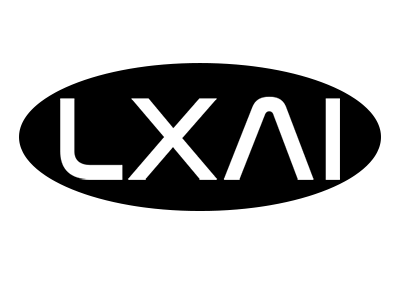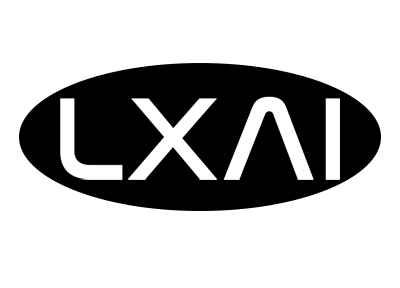LatinX in CV (LXCV) Research at ICCV 2021
This is an official workshop of the LatinX in AI (LXAI) organization, known as LatinX in Computer Vision (LXCV) at ICCV, which will be hosted virtually on: Zoom and Gathertown
Monday, October 11th, 2021 8 AM CST
ICCV is being hosted virtually in response to COVID-19 concerns.
CALL FOR PARTICIPATION
ICCV and LXCV are being hosted virtually in response to the COVID-19 pandemic.
REGISTRATION GRANTS to attend the workshop and ICCV will be provided to poster and DC presenters, as well as general attendees, apply here.
The aim of the first version of the LXCV workshop at ICCV (a previous edition was held at CVPR 2021) is to serve as a forum to develop relationships among the diverse members of the LatinX community and the ICCV community at large. Our concrete objectives are outlined as follows:
Provide a discussion and support space for LatinX to share their academic, industrial, cultural, and social challenges. We aim to have a call for extended abstracts, and provide invited talks from Latinx professionals and researchers.
Highlight prominent Latinx researchers and allies through keynote presentations. This is also an opportunity for junior professionals to connect with senior researchers and be exposed to potential role models.
Provide resources and opportunities for career growth in our community.
Raising the visibility of women researchers within the LatinX community as they might face unique barriers of entry that lead to a lack of representation within the community.
In this edition, we have two kinds of talks during the event:
1) Keynote speakers featuring the typical well-established researchers in the computer vision community.
2) Featured speakers to showcase exciting and talented researchers. For example, people at the beginning of his career (Assistant Professors, junior research scientist & Eng); people with less than 1000 citations in Google Scholar; core developers or maintainers of outstanding infrastructure contributions in CV, e.g., challenges/benchmarks, datasets, open-source libraries; or prominent senior researchers at the regional level but not necessarily established in CVPR & ICCV.
Please note that we will have a call for posters, without papers, there will not be a call for papers, unlike previous versions of this workshop.
The speakers can be living and working anywhere in the world. Still, they would have to identify as LatinX and work in CV (Academia, Industry, Entrepreneurship, or Politics) to be considered.
We will be hosting a doctoral consortium (more details here) and poster session (for details see here). Registration grants to attend the workshop and ICCV will be provided for general attendees, as well as for doctoral consortium and poster presenters. More details will be given soon!
Some of the topics covered by the workshop are as follows:
● Datasets and evaluation
● Explainable AI, fairness, accountability, privacy, transparency, and ethics in vision
● Image and video retrieval
● Image classification
● Machine learning architectures and formulations
● Scene analysis and understanding
● Transfer, low-shot, semi-and unsupervised learning
● Video analysis and understanding
● Vision + language, vision + other modalities
● Vision applications and systems, vision for robotics and autonomous vehicles
The submission for both the doctoral consortium and the poster will be done through CMT:
https://cmt3.research.microsoft.com/LXCV2021
Details for Doctoral Consortium submission can be found here.
Details for Poster submission can be found here.
If you have any questions about the workshop please check our FAQ here, or email us at: lxai-iccv-chairs-2021@latinxinai.org
ORGANIZERS
Workshop Chairs
General Chairs
Gilberto Ochoa Ruiz (Tecnológico de Monterrey, México)
Matias Valdenegro (German Research Center for Artificial Intelligence, Germany)
Mentoring Program Chairs
Lourdes Ramírez Cerna (National University of Trujillo, Perú)
Paola Cascante (University of Virginia, USA)
Pedro Braga (Universidade Federal de Pernambuco)
Public Relations and Website
Maria Luisa Santiago (Accel.ai, USA)
Christian Mata (Universitat Politècnica de Catalunya)
Javier Sánchez Galán (Universidad Tecnológica de Panama)
Josimar Edinson Chire Saire (Universidad de Sao Paolo, Brazil)
Sponsors and Finance
Eduardo Ulises Moya (Gobierno de Jalisco, Mexico)
Fabian Caba (Adobe Research, USA)
Doctoral Consortium
Hiram Ponce (Universidad Panamericana, México)
Miguel Gonzalez (Tecnológico de Monterrey, México)
Fernando Wario (Institute of Cognitive Sciences and Technologies, Italy)
Presentation and Poster Session
Victor Escorcia (Samsung AI Center, UK)
Carlos Hinojosa (Universidad Industrial de Santander, Colombia)
Cristian Rodriguez-Opazo (Institute for Machine Learning, Australia)
Tutorials and Roundtables
Lourdes Martinez (Universidad Panamericana, México)
Tania Aglaé Ramírez Del Real (CentroGEO, México)
Volunteers Chairs:
Rodolfo Valiente Romero (University of Central Florida, USA)
Eric Tokuda (University of Sao Paulo, Brazil)
Program Committee
Thanks to the following members of the LatinX in AI community and supportive allies for helping review the submissions.
Cristian Rodriguez (University of Adelaide, Australia)
Karen Sanchez (Universidad Industrial de Santander, Colombia)
Andres Jerez (Universidad Industrial de Santander, Colombia)
Carlos Hinojosa (Universidad Industrial de Santander, Colombia)
Fabian Caba (Adobe Research, USA)Gilberto Ochoa Ruiz (Tecnológico de Monterrey, México)
Matias Valdenegro (German Research Center for Artificial Intelligence, Germany)
Gilberto Ochoa Ruiz (Tecnológico de Monterrey, México)
Laura Montoya (Accel.ai, USA)
Javier Sánchez Galán (Universidad Tecnológica de Panama)
Rodolfo Valiente Romero (University of Central Florida, USA)
PROGRAM SCHEDULE
WORKSHOP SPONSORS
PLATINUM
GOLD
BRONZE
KEYNOTE SPEAKERS
ACCEPTED PAPERS
| Title | Presenting Author | Affiliation | Presentation Type |
|---|---|---|---|
| Assessing deep learning methods for the identification of kidney stones composition in endoscopic images | Francisco Lopez-Tiro | Tecnológico de Monterrey | Poster |
| Finding Significant Features for Few-Shot Learning using Dimensionality Reduction | Mauricio Mendez Ruiz | Tecnológico de Monterrey | Poster |
| Assessing the Impact of the Loss Function, Architecture and Image Type for Deep Learning-Based Wildfire Segmentation | Jorge F Ciprián-Sánchez | Tecnológico de Monterrey | Poster |
| Translating images into graphs: hybrid graph convolutional neural networks for landmark-based anatomical segmentation | Nicolás Gaggion | Research Institute for Signals, Systems and Computational Intelligence, sinc(i) | Poster |
| Interactive Web-Based Application for Prostate Annotation in MRI | Júlia Romagosa | Universitat Politècnica de Catalunya | Poster |
| Learning Privacy-preserving Optics For Human Pose Estimation | Carlos Hinojosa | Universidad Industrial de Santander / Stanford University | Poster |
| Using object detection to measure excavator teeth length | Marco A Portocarrero Rodriguez | MS4M Research and Development Department | Poster |
| Comparison between machine learning and deep learning for the classification of mammograms in BI-RADS | Ignacio Moragues | Universitat Politècnica de Catalunya | Poster |
| Self-supervised Learning for Sonar Images: Enhancing Multi-modal Perception for Underwater Applications | Alan Preciado-Grijalva | German Research Center for Artificial Intelligence / Bonn-Rhein-Sieg University of Applied Sciences | Poster |
| Graph Neural Blocks on Segmentation | Darwin D Saire Pilco | University of Campinas | Poster |
| Classification of Multiple Panamanian Watermelon Varieties Using Convolutional Neural Networks and Transfer Learning | Kenji Contreras | Universidad Tecnológica de Panamá | Poster |
| Explainable neural image recommendation using Network Dissection visual concepts | Antonio Ossa-Guerra | Pontificia Universidad Católica de Chile / Instituto Milenio Fundamentos de los Datos | Poster |






























